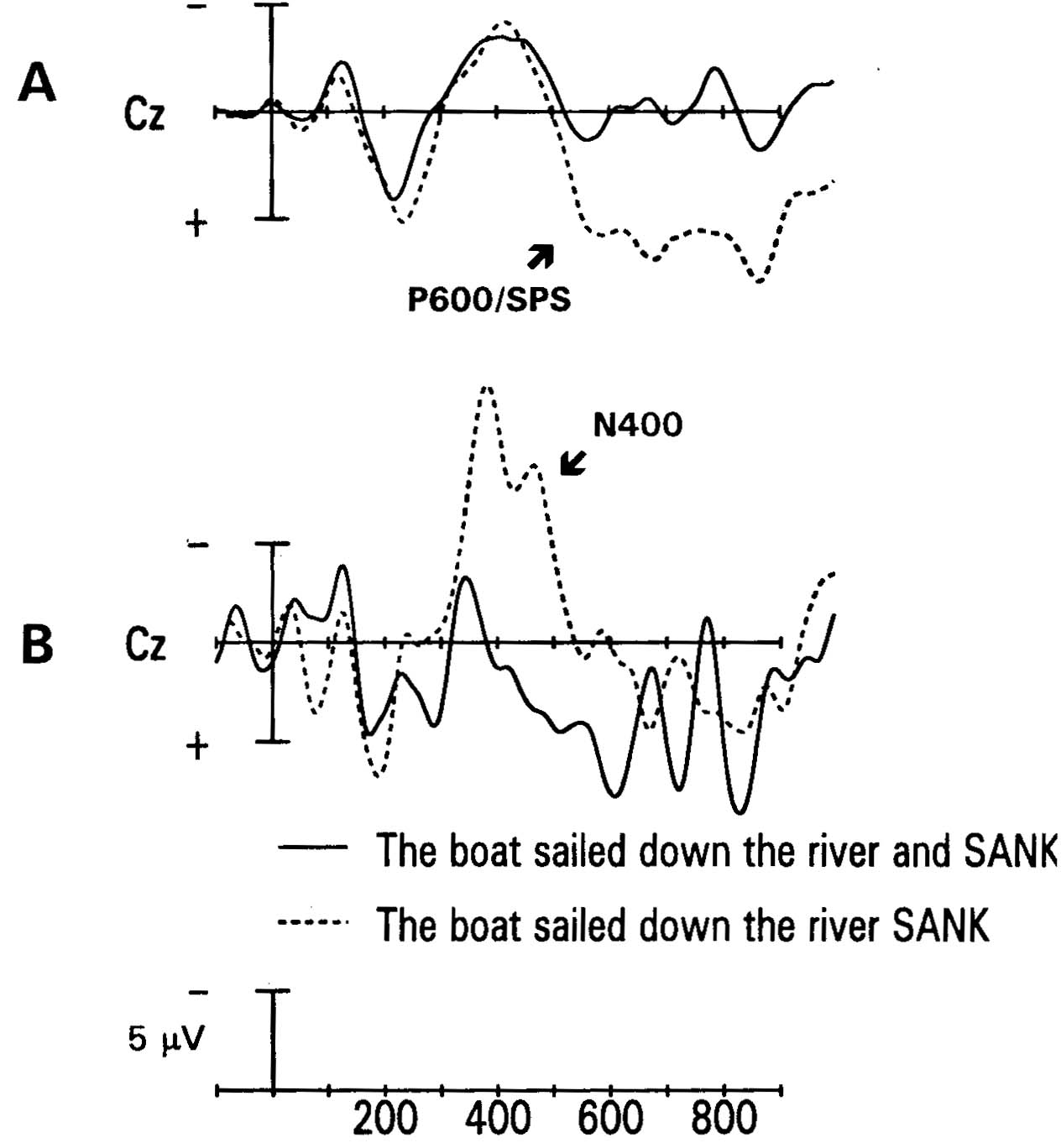The generalization that semantic anomalies elicit an N400
effect whereas syntactic anomalies elicit the P600 effect is consistent with a large body
of evidence. However, there are exceptions to this generalization. We recently
reported one of the more interesting exceptions. Participants read sentences like
these: 
(1) The boat sailed down the river and sank during the storm.
(2) The boat sailed down the river sank during the storm.
Few people have trouble understanding sentences like (1). However, sentence (2) is almost universally judged to be ungrammatical. even though it has a difficult but grammatical interpretation. The important point is that most people perceive the word sank in sentences like (2) to be really problematic, but have no problem in (1). We expected this word in (2) to elicit a P600 effect, relative to ERPs to the same word in (1). In fact, the majority of subjects did show a P600 effect to this word (Fig. A). However, a minority of subjects responded with an N400 effect to these words (Fig. B). Apparently, most subjects were sensitive to the syntactic ramifications of this anomaly, whereas others were more sensitive to the semantic ramifications. In any event, it appears that the processing strategies and linguistic competences that our participants bring with them to the lab may, in part, determine both the category an event falls into and the brain response elicited by that event.
References:
Osterhout, L. (1997). On the brain response to syntactic
anomalies: Manipulations of word position and word class reveal individual differences. Brain
and Language, 59, 494-522.